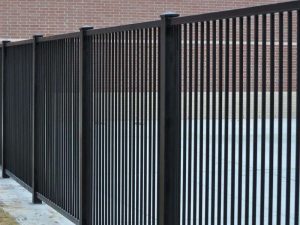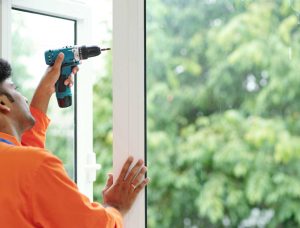
Blocked drains can be a significant headache for homeowners. The inconvenience of slow drainage, foul odours, and potential water damage can quickly turn a peaceful home into a chaotic mess. Understanding the causes, prevention techniques, and effective solutions for closed drains is crucial to maintaining a healthy and properly functioning plumbing system.
The importance of addressing closed drains promptly cannot be overstated. Ignoring the issue or delaying necessary repairs can exacerbate the problem, leading to more extensive damage and costly repairs down the line. By taking proactive measures and equipping yourself with the knowledge to tackle drains, you can save yourself from unnecessary stress, inconvenience, and financial burden.
Causes of Blocked Drains
- Accumulation of debris: Hair, soap scum, grease, food particles, and other debris can gradually build up inside drains, restricting the flow of water. These substances often stick to the inner walls of pipes and accumulate over time, leading to blockages.
- Tree root intrusion: Tree roots are naturally attracted to sources of moisture, including drainage pipes. Over time, the roots can infiltrate the pipes through cracks or joints, causing blockages and damaging the plumbing system.
- Pipe misalignment: Age, ground movement, or improper installation can result in pipes shifting or becoming misaligned. This misalignment can disrupt the smooth flow of water, leading to blockages in the affected pipes.
- Structural damage: Aging or deteriorating pipes may develop cracks, fractures, or collapses over time. These issues can create blockages as debris gets caught in the damaged areas.
- Foreign objects: Flushing items like wipes, sanitary products, cotton balls, and even excessive toilet paper can cause blocked drains. These non-biodegradable materials do not dissolve easily and can accumulate in the plumbing system, leading to blockages.
- Excessive grease buildup: Pouring grease down the drain may seem convenient, but it can solidify inside pipes, causing blockages. Over time, the accumulation of grease can constrict the flow of water and lead to persistent clogs.
- Mineral deposits: In areas with hard water, the buildup of mineral deposits, such as calcium and limescale, can narrow the pipe diameter, resulting in reduced water flow and potential blockages.
Prevention Techniques
- Regular maintenance: Preventive maintenance is crucial to keeping drains clear and functioning properly. Regularly inspect your drains and clean them to remove any debris or potential blockages.
- Use drain screens: Install drain screens or guards to prevent hair, food particles, and other debris from entering the drain. These screens can catch larger particles, allowing only water to pass through and reducing the risk of blockages.
- Flush drains with hot water: Run hot water through your drains periodically to help flush away any accumulated debris. Hot water can help dissolve soap scum and grease, preventing them from sticking to the pipes.
- Dispose of waste properly: Avoid disposing of non-biodegradable items, such as wipes, cotton balls, and sanitary products, in the toilet. Use trash bins for proper disposal instead.
- Avoid pouring grease down the sink: Instead of pouring grease down the drain, let it solidify and dispose of it in the trash. Alternatively, use containers to collect grease and dispose of it appropriately.
- Be cautious with gardening: If you have trees near your drainage system, be mindful of their root growth. Consult a professional arborist to ensure trees are planted at a safe distance from drainage pipes, minimizing the risk of root intrusion.
- Seek professional inspections: Regularly schedule professional inspections of your drainage system. Professionals can identify any potential issues, such as pipe misalignment or structural damage, and take prompt action to prevent blockages.
By understanding the causes of blocked drains and implementing preventive measures, you can significantly reduce the risk of blockages in your plumbing system. Regular maintenance, proper waste disposal, and seeking professional help when needed will ensure that your drains remain clear, promoting a healthy and functional plumbing system.
Effective Solutions
- DIY Remedies: Provide step-by-step instructions for DIY remedies to clear minor blockages in drains. Include methods like using a plunger, drain snake, or natural cleaners to address common blockages effectively.
- Professional Solutions: Discuss the importance of seeking professional help for stubborn blockages that cannot be cleared with DIY methods. Highlight the expertise and tools that professional plumbers possess to clear closed drains efficiently.
- Preventive Maintenance Programs: Mention the benefits of enrolling in preventive maintenance programs offered by plumbing services to keep drains clear and prevent future blockages. Outline the services included in these programs.
Conclusion
In conclusion, don’t underestimate the importance of maintaining your drains. By taking the necessary steps to prevent blockages and promptly addressing any issues that arise, you can keep your plumbing system in good working order and maintain a clean and stress-free home environment. Blocked drains can lead to significant inconveniences and potential damage to your home if not addressed promptly. By understanding the common causes of closed drains and implementing preventive measures, you can minimize the risk of blockages in your plumbing system.
Accumulated debris, tree root intrusion, pipe misalignment, structural damage, foreign objects, excessive grease buildup, and mineral deposits are all potential causes of closed drains. Regular maintenance, such as clearing debris and flushing drains with hot water, can help prevent blockages caused by hair, soap scum, grease, and food particles. Installing drain screens, disposing of waste properly, and avoiding pouring grease down the sink can also prevent blockages caused by foreign objects.







